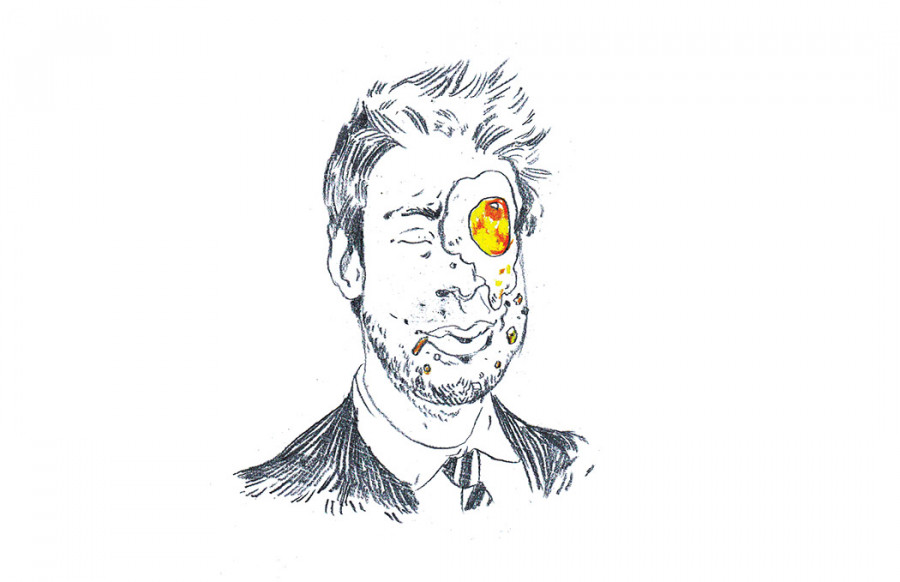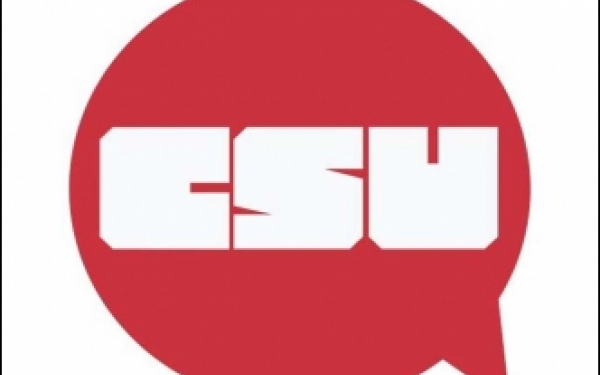The Thought Police Strikes Concordia
Assumptions Stain Kyle Arseneau Case
The most striking element about a disqualification is the finality of it. It is akin to death and, unless you’re Lazarus, there is no recourse from it. Unlike death, however, disqualification always involves deep shame and rejection from your peers.
Following a hearing of the Concordia Student Union’s Judicial Board last week, Kyle Arseneau was officially disqualified from running for CSU councillor in the March general elections.
In the process, he was cheated out of a spot on the CSU council—Arseneau received the second-highest number of votes among the candidates for four council seats.
But perhaps more importantly, he may forever be known as a homophobe.
It was his punishment for breaking the rules during the recent campaign. Admittedly, Arseneau was sipping a drink in a pub when he laughed in the face of several CSU regulations and posted the following to the “2k15 Concordia EngGames” Facebook group: “Hey u baggots. CSU eRections. Go vote. K thx. (Ps don’t vote for _______).”
At the hearing, the most outrageous factor in the disqualification of Arseneau was what he presumably meant. The man was dead on arrival. I don’t believe the members of the board ever doubted their own assumptions. They threw the book at him despite the fact that he never actually made a homophobic slur. Or did he?
When chief electoral officer Andre-Marcel Baril read Arseneau’s comments on Facebook, he immediately reprimanded the wrongdoer. In desperation, Arseneau tried to explain himself but alas, the CEO ran to the authorities.
It took several hours for Arseneau to realize that he had jumped headfirst in homophobic quicksand—and that he was sinking fast.
The next Monday, he was on the hot seat as the JB grilled him about his motives.
There is no doubt that Arseneau acted irresponsibly. In one alcohol-tinged post—and perhaps out of frustration—he threw away his entire campaign. He failed to tag the CEO in his post, something the CSU asks of all their candidates. He also broke the rules of fair play when he asked voters to refrain from voting for a candidate he doesn’t name.
But above all—and perhaps this was his most foolhardy move—Arseneau typed the word, or rather non-word, “baggots.”
In their final decision, the board said they “felt that Mr. Baril’s interpretation of what the term ‘baggots’ refers to was reasonable.”
“I beg anyone to look up the term “baggots” on their computer and see what they get,” said Baril at the hearing.
Prompted by the CEO’s declaration, several people in attendance scrambled to reach their smartphones. The first link led to the dubious but sometimes hilarious Urban Dictionary.
But the problem isn’t what Arseneau meant. The problem is that this accusation isn’t based on tangible evidence. It is only based on Baril’s and certain board members’ interpretation of what Arseneau had on his mind in that bar. It is the straw that broke the camel’s back, and yet, it isn’t even a verified colloquialism.
Any student worth his stripes will tell you that Wikipedia is never admissible as a source. But to watch Urban Dictionary set a precedent in a JB hearing is frightening.
Arseneau would go to his grave swearing that he meant to text “maggots.” Perhaps if he had gone kicking and screaming, they would have given more considerable thought to their assumptions. But he didn’t.
And that is what is so alarming about the young man’s behaviour. Never mind that he might have been voted in, he didn’t seem to understand the scope of the accusation. He wasn’t condemned for inciting hate, but for being presumed to have incited it. What will happen in the future when another person makes a “genuine” mistake? Will we publicly stone them too?
CORRECTION: An earlier version of this article read “The members of the board ever doubted their own assumptions.” The article has been updated to more accurately reflect that this is a statement of opinion by the author. The Link regrets the error.


_600_832_s.png)

2_600_375_90_s_c1.jpg)

_600_375_90_s_c1.jpg)